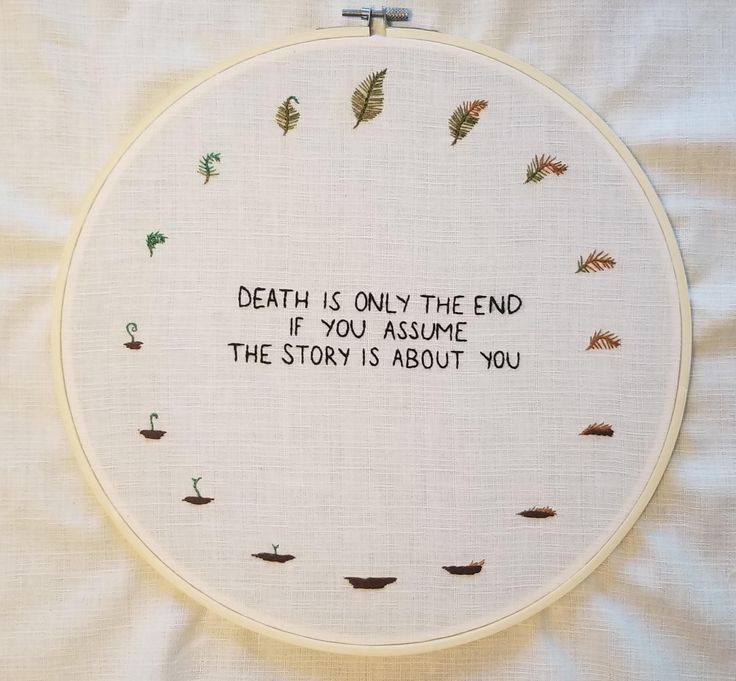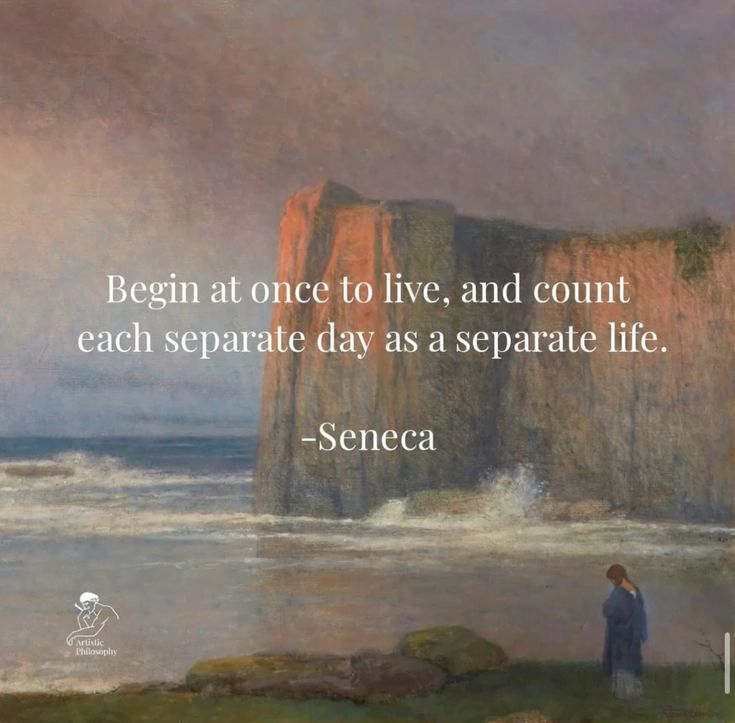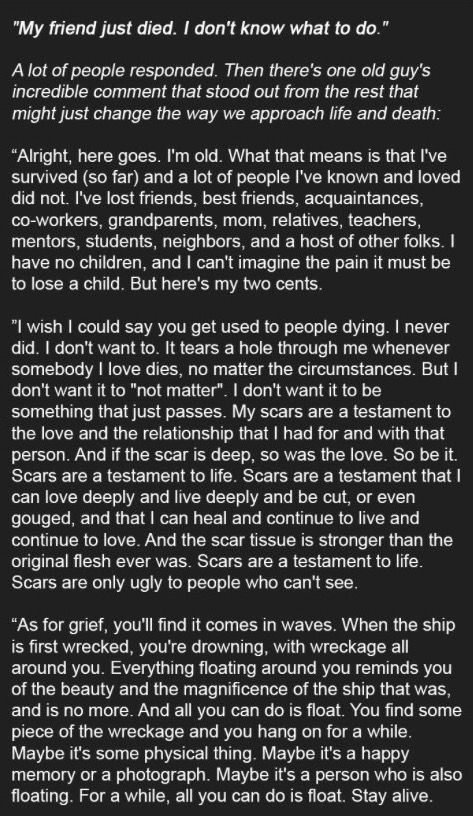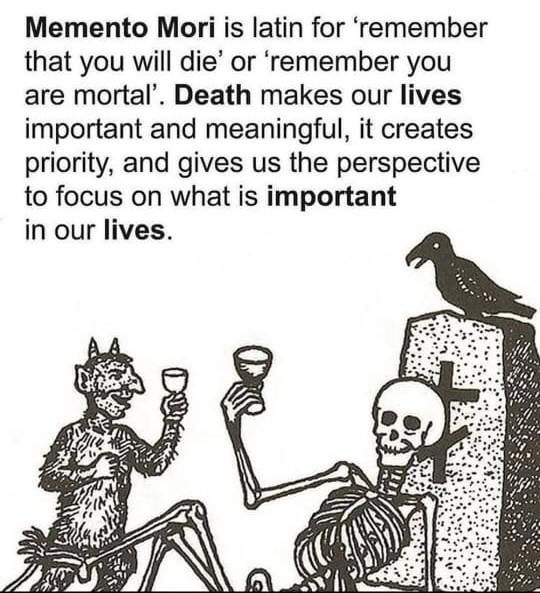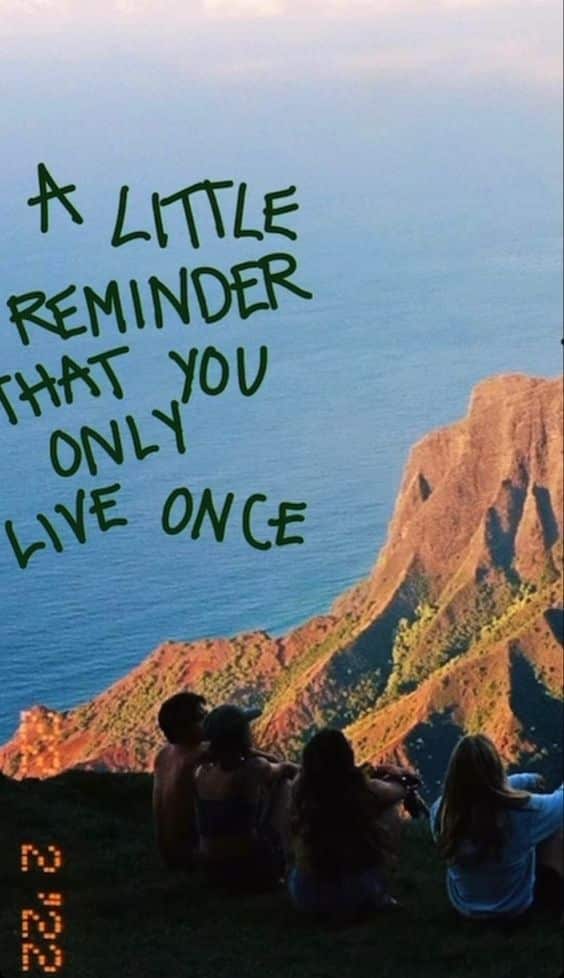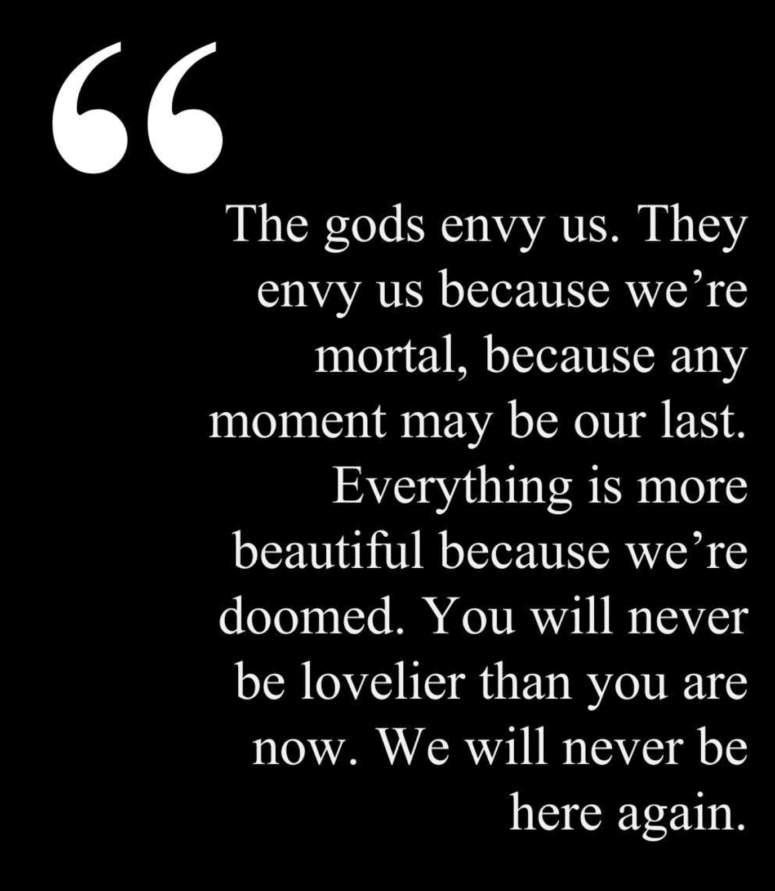“If you accept death, it is altogether like a frosty night and an anxious misgiving, but a frosty night in a vineyard full of sweet grapes. You will soon take pleasure in your wealth. Death ripens. One needs death to be able to harvest the fruit. Without death, life would be meaningless, since the long-lasting rises again and denies its own meaning. To be, and to enjoy your being, you need death, and limitation enables you to fulfill your being.”
Carl Jung
“There’s something sobering about moments when mortality decides to pull up a chair and join you for a chat. It doesn’t matter who you are, how much kale you’ve eaten, or whether you can still squeeze into your high school jeans on your 60th birthday. (Spoiler Alert: I cannot). Mortality reminds us that we’re all just passing through, and none of us gets to skip the check-out line. Death doesn’t discriminate. But here’s the twist: Mortality isn’t here to ruin the party. It’s here to remind us to live.”
Craig Misewicz
“A parent who acknowledges the fragility of life understands that every moment with their child is a gift not to be wasted. A wise parent looks at the world, harsh as it is, and says, ‘I see what you’re capable of, what you might do to my family tomorrow, but today, you’ve spared us. I will not take that for granted.’ That is how we must live—not just with our children, but with our wealth, our health, the peace in our country, the clear skies above.”
Ryan Holiday
“Inner peace is not something you assemble externally; it is a perspective in your mind that is anchored in the truth of impermanence. When you deeply understand that all situations change, you cling to everything less. You appreciate the things that are enjoyable, and you are not troubled when they end. You face challenges when they arise, but you know that no storm lasts forever.”
Yung Pueblo
“That in a short while you will be nobody and nowhere; and the same of all that you now see and all who are now alive. It is the nature of all things to change, to perish and be transformed, so that in succession different things can come to be.”
Marcus Aurelius, Meditations (Page 119)
“Soon you will have forgotten all things: soon all things will have forgotten you.”
Marcus Aurelius, Meditations (Page 61)
“Change can be scary, but it’s utterly unavoidable. In fact, impermanence is the only thing you can truly rely on. If you are unwilling or unable to pivot and adapt to the incessant, fluctuating tides of life, you will not enjoy being here. Sometimes, people try to play the cards that they wish they had, instead of playing the hand they’ve been dealt. The capacity to adjust and improvise is arguably the single most critical human ability.”
Will Smith, Will (Page 193)
“We all have to contend with the natural processes of destruction. Everything is impermanent—your body’s going to get old; your best friend is going to graduate and move to another city; that tree you used to climb in front of Stacey Brooks’s house is going to crash down in a storm. Your parents are going to die. Everything changes; it rises, and it falls. Nothing and no one is immune to the entropy of the universe. That is why self-destruction is such a terrible crime. It’s hard enough as it is.”
Will Smith, Will (Page 158)
“Premeditation of death is premeditation of freedom… He who has learned how to die has unlearned how to be a slave. Knowing how to die frees us from all subjection and constraint.”
Michel De Montaigne, via The Daily Laws (Page 453)
“Everything in this world blooms, grows, and returns to its roots. Returning to one’s roots means becoming united with nature; becoming united with nature involves eternity. The destruction of your body holds no danger in itself.”
Lao-Tzu, via A Calendar of Wisdom (Page 354)
“For it’s always that way with the sacred value of life. We forget it as long as it belongs to us, and give it as little attention during the unconcerned hours of our life as we do the stars in the light of day. Darkness must fall before we are aware of the majesty of the stars above our heads.”
Stefan Zweig, via The Daily Laws (Page 423)
“Our biggest desire is to live forever. But when we are freed from this body, we will not wish to come back. Is there such a child who, once born, would like to return to the womb of his mother? Is there a man who, freed from prison, would like to return to it? In the same way, a person would not be afraid about the future liberation from his body, if he is not connected too closely with this material life.”
Tables Of The Babids, via A Calendar of Wisdom (Page 212)
“There is no death for the spirit; therefore, a person who lives a spiritual life is freed from death.”
Leo Tolstoy, A Calendar of Wisdom (Page 188)
